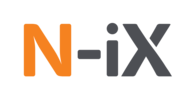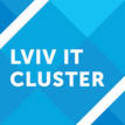
Supporting by:

623
registered participants
Every summer, three years in a row we invite the best industry specialists, experts, mentors and lecturers from leading IT companies to create a unique educational platform for studying the features and novelties of artificial intelligence technologies.
Goal: To create an educational platform for studying theoretical foundations and practical skills between students and the IT industry in the field of artificial intelligence. To strengthen the attention of students of technical specialities to the challenges and opportunities provided by the technology of artificial intelligence. To create a basis for the development and creation of innovative products and solutions that use artificial intelligence.
Artificial intelligence is a powerful driver of change that opens up limitless opportunities for the development technologies.
When: 26 June – 7 July 2023
Format: Online/exclusive offline meetings
School language: English
Target audience: Students of technical specialities in Ukraine and abroad.
School Topics: Python, Big Data, Cloud Computing, Databases, Machine Learning, Deep Learning,Mobile Development, Web Development, Modern technologies of Artificial Intelligence
Whom we are looking for (or we need):
– speakers, mentors, mentors for school work
– partners for high-quality presentations of the school
Write to our inbox: marketing@lnu.edu.ua
PS. By creating artificial intelligence, we open up limitless possibilities for the future, where machine and man can work together to achieve incredible successes in science, art and life in general – chat GPT!
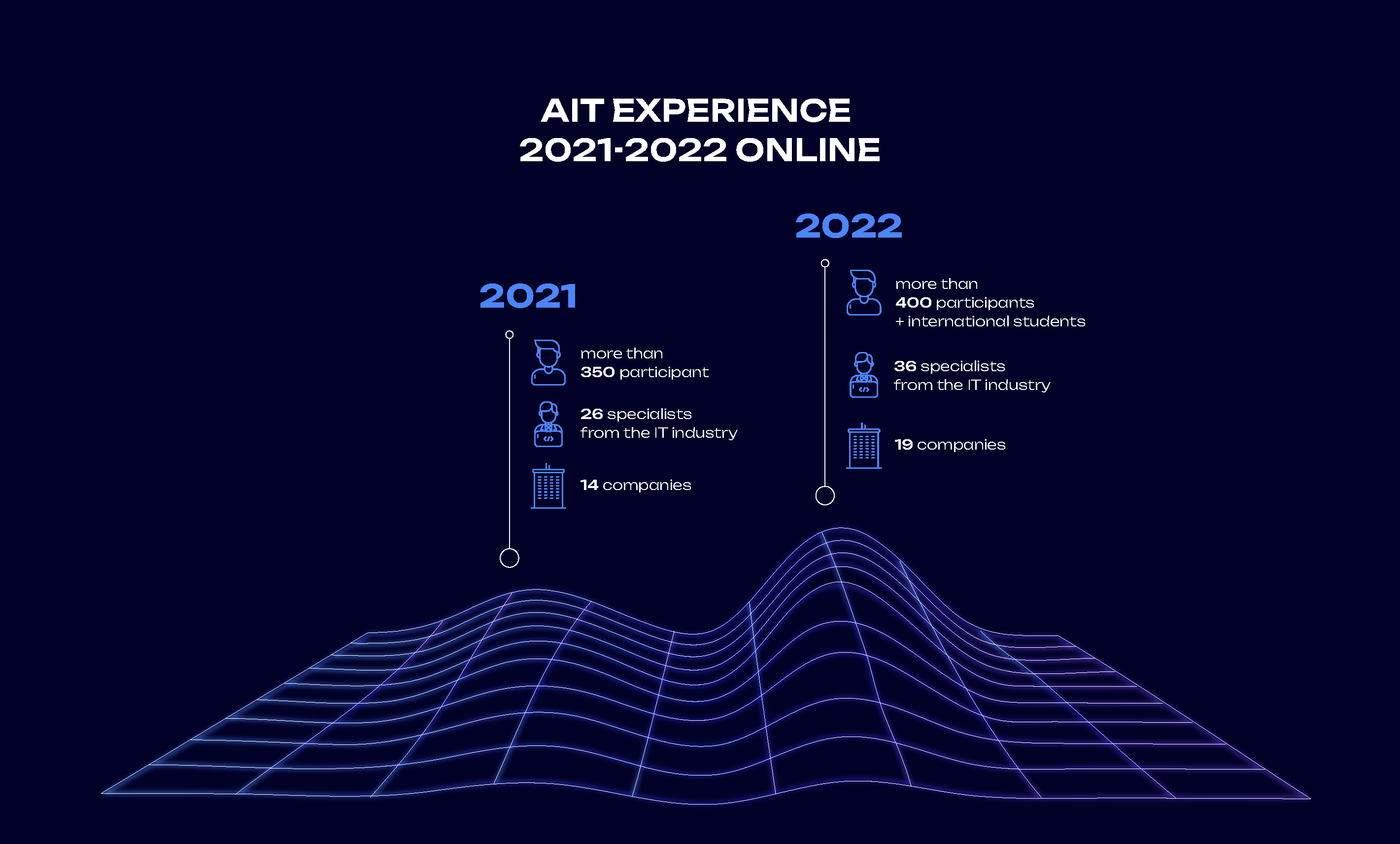
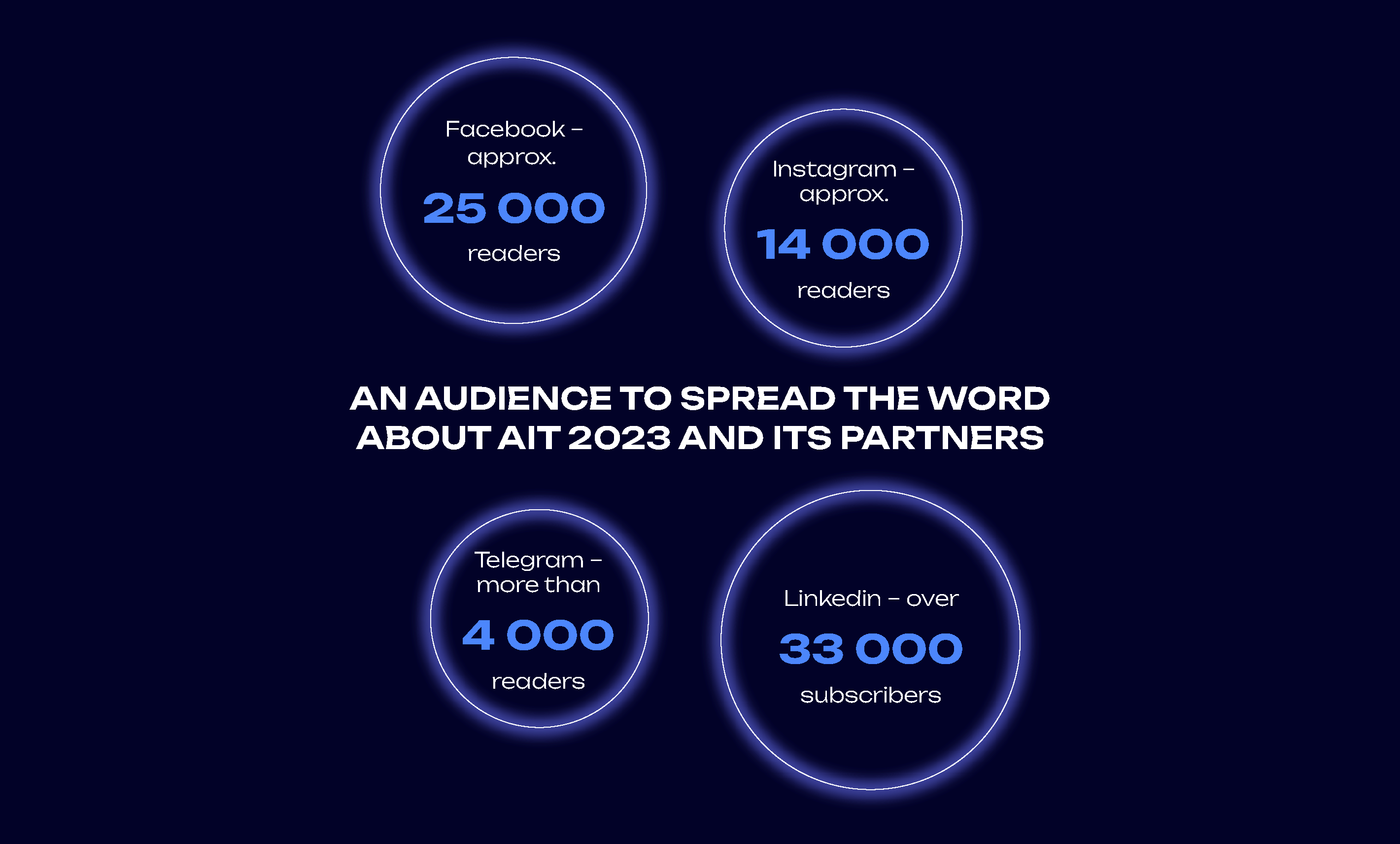
BASIC TOPICS (3 DAYS)
Day 1. Python for DS, ML&DL
Python
Python basics
Python for data analysis
Python for visualization
Python for data mining
Machine Learning toolchain
Numpy, Pandas, Scikit-learn
TensorFlow, Keras, PyTorch
Apache MXNet
OpenCV
OpenAI Gym, Apache Airflow
Git, Data Version Control (DVC)
Day 2. Big data and cloud computing
Big Data
Big Data in AWS
Big Data in GCP
Big Data in Azure
Big Data Visualization
Cloud services and technologies. Cloud computing
Amazon Web Services
Google Cloud Platform
MS Azure
SaaS, PaaS and IaaS
Industry Cloud Platforms
Databases
Relational, non-relational, distributed databases
Data warehouse, ETL, Data Workflows
Day 3. Мachine learning
Мachine learning basics
Supervised Machine Learning
Reinforcement Machine Learning
Unsupervised Machine Learning
Deep learning
ADVANCED TOPICS
Advanced Мachine learning
CV, Image recognition and classification
NLP, Speech recognition, Audio recognition, Text recognition and emotion detection
Deep learning for forecasting
End-to-end Machine learning projects/models to solve practical problems
Generative models, artificial art
Language models, Transformers, BERT, GPT models family (GPT-1, 2, 3, 3.5, 4)
Adaptive AI
AI Trust, Risk and Security Management (AI TRiSM)
AutoML
Multi-modal learning
Democratized AI
High-performance computing
Fundamentals of parallel, hybrid and distributed computing
Getting Started with Jetson Xavier NX Developer Kit
Getting started with Google Coral's TPU USB Accelerator or/and Google Coral Development Board
Mobile development
Android, iOS
Flutter
Kotlin Multiplatform for Cross-Platform Mobile Development
Swift
React Native for mobile
Integration of artificial intelligence systems in mobile development
Distribution of mobile applications
Web development
Web development using Flask / Django
Authentication methods for web services
Organization of infrastructure and deployment of web services
Web analytics, Social network analysis, Crawlers, analytical platforms
Integration of artificial intelligence systems in web development
JavaScript
Software development
C, C++, Java, Go
Digital Immune System
Superapps
Platform Engineering
AI Code Generation
IoT, IIoT, AIoT
Internet of Things, Industrial Internet of Things
Artificial Intelligence of Things
Edge AI, Embedded AI
AI in Automotive
Atomization AI
Virtual reality, Metaverse, Digital twins
Usage of AI in modern services, applications, platforms
AI in COVID researches and solutions
AI in sustainable, ecological and environmental technologies
Decision Support Systems and Applied Observability
Cyber security and AI
Soft Skills
Communication
Collaboration and teamwork
Time management and organization
Empathy / Emotional intelligence
Owning up to errors
Problem solving and creativity
People skills and management
Innovation
Analytical thinking
Opening ceremony of the school

Volodymyr Melnyk — Rector at Ivan Franko National University of Lviv
Vitaliy Kukharskyy - Vice-Rector for Research, Teaching and IT-Development
Volodimir Sitnіkov, CEO Brainstack_

Zavgorodnii Dmytro, Deputy Minister of Education and Science of Ukraine for digital development, digital transformations and digitalization
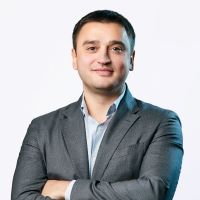
Oleksandr Bornyakov, Deputy Minister of Digital Transformation for IT Development

Denys Grynov, Head of EРАМ University in Ukraine, Vice President on Educational issues of the IT Ukraine Association
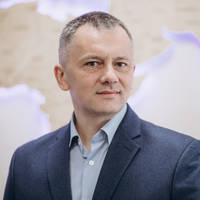
Igor Kostiv, Associate Vice President, Engineering, Global Logic
Sviatoslav Kavetskyi, Director of Industry Affairs at N-iX

Julia Tsymbala, Education Lead at Lviv IT Cluster

Ivan Korzhov, Country Manager at Infopulse

Martin Braun, Co-Founder at NeuroForge
Speakers (in process)

Galyna Dychko, Middle Data Science: Generic, N-iX
The pitfalls of trying to extract causal insights from a predictive machine learning model
Have you ever used an interpretability tool (e.g. SHAP) to answer causal questions? Were you surprised by strange patterns like the more users report bugs the more likely they are to renew or users with significant discounts are less likely to continue a subscription? Let’s figure out together when SHAP fails to answer what-if questions and when it brings real values for causal inference.

Oleksandra Derevytska, Middle Test Engineer, ELEKS
Humanistic Approach to Time Management
- who where why: why context matters for planning
- why some people are not able to use common planning approaches
- what hints can be used
- overview of popular methods

Iurii Bregman, Senior Software Developer, ELEKS
S.O.L.I.D. and other practices
- Explaining why it's important to prioritise quality over speed in professional work
-Explaining each of the SOLID principles one by one-The KISS principle and it's importance
-Propaganda of Refactoring -Propaganda of TDD
-Propaganda of Pair Programming

Bohdan Trynka, Middle Software Developer, ELEKS
Introduction:
Briefly introduce the concept of Artificial Intelligence (AI) and its impact on various industries. Highlight the significance of AI in web development, revolutionizing user experiences and interactions.
Thesis 1: Training AI Models for Web Development
Thesis 2: Empowering Web Applications with ChatGPT
Thesis 3: Enhancing User Experience with AI-Driven Personalization
Thesis 4: Improving Web Accessibility with AI
Thesis 5: AI-Driven Content Generation and Curation
Thesis 6: AI-Powered Security and Fraud Detection
Thesis 7: Streamlining Web Development with AI Tools and Frameworks
Thesis 8: Ethical Considerations in AI-Driven Web Development
Thesis 9: The problem of dependence on the provider
Thesis 10: Preserving the context when working with the API and tuning

Vasyl Lyashkevych, ML Solutions Architect, GlobalLogic
1.Databases: Relational, non-relational, distributed databases. Data warehouse, ETL, Data Workflows
In the lecture, you will see the main concepts of databases and modern approaches to building data warehouses, data lakes, ETL, data workflows and the best practices from the industry.
2.Virtual reality, Metaverse, Digital twins
We will show the Digital twins technology and its impact on virtual reality, the features of the virtual reality techniques and the technology stack as a basis of Metaverse.
3.Unsupervised Machine Learning
Basic concepts and features of learning without a teacher. High-resolution problems. Clustering. Examples of clustering applications. K-averages. Gaussian mixture model. Hierarchical clustering. Density-based methods. Spectral clustering.
4."Topic about Advanced Мachine learning" / Language models, Transformers, BERT, GPT models family (GPT-1, 2, 3, 3.5, 4)
The lecture represents the features of language models, word embedding techniques, modern transformer-based language models and the latest breakthrough of the ChartGPT.

Vitalii Miroshnychenko, PhD in statistics, Lead software engineer, GlobalLogic
1. ML Toolchain
Some things an engineer should not write at all, because thousands of people around the world worked on it for him. In this lecture, I will talk about the main libraries used by ML and Data science engineers to solve project problems: numpy, pandas, tensorflow and others. With the help of these libraries, we will demonstrate both simple examples (for example, how to work with data sets) and complex ones:
- data preparation,
- acceleration of calculations,
- and how easy it is to transfer calculations from the processor to graphics cards
2. Deep learning
Usually, the work of an ML engineer consists of creating or using deep neural network architectures. For some tasks, it will not be possible to use ready-made models, so you have to write them yourself. In this lecture, we will consider the main modern approaches and problems that are solved with the help of deep learning:
- Layers of neural networks
- Model architectures for various tasks
- Construction of own neural network
- Learning generative models
3. Deep learning for forecasting
Most of the problems can now be solved by already created architectures of deep neural networks, but there are many problems that are difficult to solve with an architecture "out of the box" due to the specificity of the data. Examples of such tasks are various search engines and recommendation algorithms. Usually, such problems are solved not by one model, but by a set of models. In this lecture we will consider:
- Simple regression examples
- Neural network architectures that transform pictures (or text) into a short vector of numbers
- Multimodal architectures (Working simultaneously with images and text)
- Some approaches to building product recommendation systems or search engines
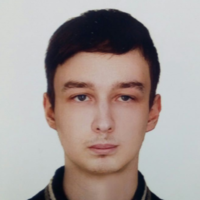
Kulyk Petro Ruslanovych, Java, Kotlin developer @ IFNUL
Assistant of the System Design Department, Faculty of Electronics and Computer Technology ,
The range of interests includes non-relational databases, Big Data, personal knowledge system and neural networks. I have been working on development and maintenance of Public Domain Software for desktop personal computers for four years.
Dmytro Yuzvak, Senior QA Engineer, SQUAD
The Uncharted Path: Exploring ML Component Testing
In this lecture, we will delve into the testing process of ML models, exploring its significance and the consequences of neglecting it. We will distinguish between the QA process and the feasibility checks typically carried out by developers. We will also discuss the practical aspects of this process, including data acquisition, and identify the key metrics required to become true guardians of quality.

Marta Balahurak, Senior Android Developer, Kindgeek Mobile Development, Android
Android basics. Android development roadmap
Interested in building Android apps but not sure where to start? Or maybe you’re still exploring different technologies? Join me at my Android lecture where we’ll dive into the basics of Android development and uncover the roadmap to take you from beginner to pro. And don’t worry, we’ll also get hands-on and build your very first Android app during the session. Get ready for an awesome Android adventure!
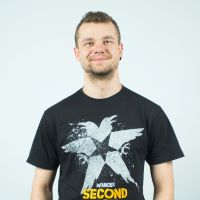
Faryna Marian,Principal Software Developer, Sigma Software
Big Data: Big Data in AWS, Big Data in GCP, Big Data in Azure. Big Data Visualization.
Cloud providers went through a long path of designing, developing, and transforming their services to become a solid foundation for Big Data solutions. Each of the popular provider has its own set of services that can be used to build a modern Data Platform. Most of the services are mirrored between cloud providers, but if look into details, you will definitely find differences, and even opposite approach to solve same problems.

Igor Sharmansky, Data Scientist at Boosta, Boosta
Python
Python basics
Python for data analysis
Python for visualization
Python for data mining
Volodymyr Tkachuk, Professor, D. Sc, Chairman of the Department for Theoretical Physics, Ivan Franko National University of Lviv
Lecture "From classical to quantum bit"
The elementary cell of classical computers is a bit. It is a physical system that can be in two stable states associated with 0 or 1. In the quantum case instead of bit, we have a quantum bit (qubit) which lives in the two-dimensional linear space spanned by two basic vectors |0> and |1> which, similarly to the classical case, are associated with 0 and 1. Contrary to the classical case, a quantum bit can be in a state which is a superposition of two possibilities. Note that understanding of quantum programming is impossible without knowing quantum mechanics. Using as example a quantum bit we will present postulates of quantum mechanics. One-qubit gates will be demonstrated.
Practical course on topic "From classical to quantum bit".
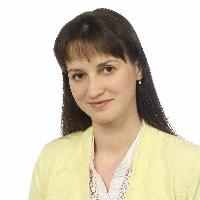
Khrystyna Gnatenko, Professor, D. Sc, Ivan Franko National University of Lviv, Department for Theoretical Physics
Lecture "Multi-qubit quantum states and their preparation on a quantum computer"
Multi-qubit quantum states will be considered. Basic operations with the states on IBM's quantum computer will be demonstrated in detail. It is worth stressing that the entanglement plays a critical role in quantum information. The measure of entanglement of quantum states known as concurrence will be discussed and calculated.
Practical course on topic "Multi-qubit quantum states and their preparation on a quantum computer".
Vasyl Davydko, Managing Partner, Leopolis Group
Local LLM (Large Language model) deployment
What is LLM
How LLM works
What are the challenges of using third-party LLM
How to deploy LLM on your local servers
Do you really need LLM

Vladyslav Kidyba, Senior analyst, Leopolis Group
Local LLM (Large Language model) deployment
What is LLM
How LLM works
What are the challenges of using third-party LLM
How to deploy LLM on your local servers
Do you really need LLM
Volodymyr Liashenko, Business Analyst, Leopolis Group
Prompting ChatGPT: how to optimize your studying.
Understanding Chat GPT
Impact on Daily Life
Practical Applications
Responsible Usage

Anhelina Zinchenko, Junior Business Analyst, Leopolis Group
Prompting ChatGPT: how to optimize your studying
Understanding Chat GPT
Impact on Daily Life
Practical Applications
Responsible Usage
Vadym Popov, Expert IT Engineer (Cloud Solutions), Infopulse
1. Cloud Concepts
This lecture provides an introduction to the fundamental concepts of cloud computing.
- IaaS (Infrastructure as a Service)
- PaaS (Platform as a Service)
- SaaS (Software as a Service)
2. Introduction to Azure Cloud Services
In this lecture, you will gain foundational knowledge of core Azure services.
- Identity
- Networking
- Storage
- Virtual Machines
- PaaS Compute Options
- Database Services
- Other Services
- Azure for Students
3. Industry Cloud Platforms
This lecture focuses on Azure services tailored for businesses in various industries.
- Azure IoT (Internet of Things) service
- General Security
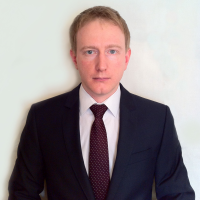
Oleksii Ivanov, Expert IT Engineer (Cloud Solutions), Infopulse
1. Cloud Concepts
This lecture provides an introduction to the fundamental concepts of cloud computing.
- IaaS (Infrastructure as a Service)
- PaaS (Platform as a Service)
- SaaS (Software as a Service)
2. Introduction to Azure Cloud Services
In this lecture, you will gain foundational knowledge of core Azure services.
- Identity
- Networking
- Storage
- Virtual Machines
- PaaS Compute Options
- Database Services
- Other Services
- Azure for Students
3. Industry Cloud Platforms
This lecture focuses on Azure services tailored for businesses in various industries.
- Azure IoT (Internet of Things) service
- General Security

Maksym Druchok, LifeScience R&D Lead at SoftServe Inc., PhD in theoretical physics
"Machine learning methods in LifeScience"
During the lecture we will dive into chem- and bioinformatics concepts, will learn how to encode organic molecules, feed them to machine learning models, and predict properties of interest. Additionally, we will visit the world of precision medicines to understand how personal therapies are designed and how drug dosage or treatment prescriptions are adjusted for individual patients.

Chernjavskyj Mykola, Project manager, Indeema Software
Project Management in IoT
- What is IoT?
- The Role of Project Management in IoT Projects
- Project Planning and Risk Management
- Skills for Project Managers qualification

Volodymyr Chernetskyi, Senior DevOps (AWS) Engineer, Intellias
Cloud computing: Amazon Web Services
Discover the pre-cloud era and the challenges faced in managing data and resources. Explore various cloud computing deployment models. Uncover the advantages of cloud computing. Delve into cloud computing models, offering powerful computing resources, development environments, and ready-to-use applications. Learn about AWS, its history, extensive service offerings, and its impact on cloud adoption. Lastly, explore the exciting realm of AI and ML services on AWS, empowering data scientists to build, train, and deploy sophisticated models and extract insights from vast datasets. Take advantage of this opportunity to embark on a transformative journey in cloud computing and AWS.
What did the world look like before cloud computing?
Cloud computing deployment models.
Advantages of cloud computing.
Cloud computing models.
Amazon Web Services.
Machine Learning and Artificial Intelligence services on AWS.
How to get started with AWS?

Andrii Stepko, Senior GoLang Developer, Intellias
Go programming language
How do we use Go.
Go philosophy and specifics - what differs it from other languages.
Go routines to parallel applications.
What people usually love and dislike (rarely) in Go.
What to start with in Go.
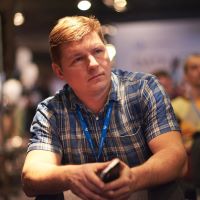
Andy Bosyi MindCraft.ai, CEO/Founder with the presentation
Neural networks. Advanced Backpropagation Algorithm

Yurii Yevstafiiev, Software Engineering Manager, Head of JS Unit EPAM UA South
Frontend. How to start & why it is important + AI

Marian Fediv, Lead Software Engineer, Cross-location BigData Lab Leader, EPAM
Big Data - Introduction. Review. Growth

Yevhen Leshchynskyy, Senior Performance Analyst, Performance testing lab leader at EPAM WEST
Performance Testing. The path with bricks and candies

Liubomyr Drevych, Middle iOS Swift Developer, Intellias
Enhancing Game Board Experiences on iOS: Exploring Vision-based Techniques for Recognition and Placement Using CoreML and Vision Framework
Recognizing the game board and converting it into an electronic version using Vision.
Additional shape recognition for correct placement using CoreML and Vision framework.

Marta Maloid-Hliebova, Vice-dean of faculty of Mechanics and Mathematics, Ivan Franko National University of L’viv

Oleh Buhrii, Doctor of Science, Professor, Head of Department of Mathematical Statistics and Differential Equations, Faculty of Mechanics and Mathematics, Ivan Franko National University of Lviv
Statistical Data Analysis

Valeriia Bieliavtseva, Recruiter, Boosta
First Interview: Tips & Tricks
First CV. First Interview. First Job

Oliver Fehmel, Project Manager, groupXS
Why AI is not the solution for everything (and how do software projects start at all)?

Stefan Diersch, Business Development Manager, groupXS
Why AI is not the solution for everything (and how do software projects start at all)?

Nicolai Sticht, Senior IT Strategist and Software Engineer, groupXS
Industry 5.0: Why AI is not the solution for everything (and how do software projects start at all)? 100% remote working: Why I would never want to work differently, and why it's still not always rainbows and unicorns?

Martin Braun, CTO NeuroForge
Data Science and AI Learnings from/for the Real World
Orchestrating Machine Learning Trainings and Software with MLOps & DevOps

Sebastian Lützow, Senior Big Data Developer, NeuroForge
Data Science and AI Learnings from/for the Real World
Orchestrating Machine Learning Trainings and Software with MLOps & DevOps

Artem Shelamanov, Data Scientist, NeuroForge
Data Science and AI Learnings from/for the Real World
Orchestrating Machine Learning Trainings and Software with MLOps & DevOps
General partner
Partner
Participant
Information partner
How to join?
1) To provide the school with a speaker or mentor;
2) to support the project implementation by becoming its partner.
Advantages of partnership:
- additional promotion of your company among students;
- communication and involvement of the students into the company's activities;
- distribution of information content and posts about the company in the social networks of the University;
If you want to take part in schoolwork or cooperate with us, send us an email: marketing@lnu.edu.ua


